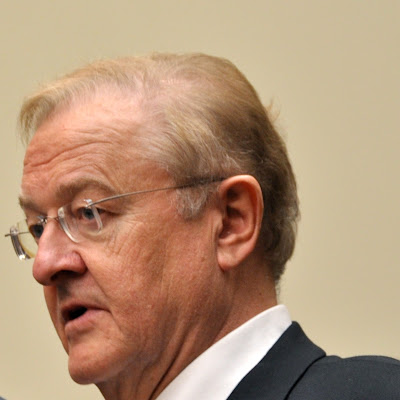Opposition to Irish justice in DC was – Irish!
Posted By: June 07, 2011

Andersonstown News Monday 14th of April 2011 By Gráinne McWilliams
PROTESTANT politicians in America did more to advance the cause of Irish human rights than their Irish-Catholic counterparts, according to a new book by the founder of a leading US Irish lobby group. Father Sean McManus, head of the Irish National Caucus lobby on Capitol Hill, Washington DC, was speaking during a visit to West Belfast as part of the Irish launch of his memoirs, entitled ‘My American Struggle for Justice in Northern Ireland’. The Belfast launch, which took place in Cultúrlann McAdam Ó Fiaich on the Falls Road, was sponsored by Relatives for Justice and supported by the Ballymurphy Massacre families, who took Fr McManus on a tour of the spots where their 11 loved ones were gunned down by the British army in 1971. The Fermanagh-born priest first came to the USA in 1972 and founded the Irish National Caucus the following year to help advance the cause of Irish human rights at the heart of American government. One of the major achievements of the caucus was the introduction into US law of the MacBride Principles – a corporate code of conduct in fair employment and affirmative action for US companies doing business in the North. It has gone on to become the Congressional standard for all US aid to or for economic dealings with the North. “I’ve always felt that the only thing that the British government really would be concerned about when it came to human rights violations in Northern Ireland would be public opinion on Capitol Hill,” said Fr McManus. “So that is why I’ve spent so much of my life pushing the issue there. We started off without a penny, we had no big money behind us, we were never supported by rich Irish Americans and yet we somehow succeeded against huge odds.” Fr McManus spoke of how obstacles to their lobbying came from the most unlikely quarters. “From 1974 to 1995 US Congressional hearings on British violations of human rights in Northern Ireland were banned, mostly by Irish Catholic speakers of the House of Representatives,” he said. “Tip O’Neill, Tom Foley and others absolutely banned them. We pushed and pushed, but they were banned. The Dublin government and London government had convinced these speakers that anything that would embarrass the British would help the IRA, ergo that’s a bad thing. To me, that’s collusion. “The great irony is that it took a right-wing, conservative Protestant Speaker of the House of Representatives to allow these human rights’ hearings – Newt Gingrich – whereas Irish Catholic speakers of the House had banned hearings,” he continued. “A Protestant from Georgia – non-Irish, non-Catholic – allows them to start.” But the most vehement opposition to the work of the Irish National Caucus was to come from the Republic of Ireland. “The Dublin government was ferociously opposed to what we were doing and set out to demonise every person who tried to raise the issue of human rights in American government,” said Fr McManus. “Our campaign was always non-violent and yet they opposed us tooth and nail as if we were urging US Congress to invade London. They opposed us on the Finucane killing, the Birmingham Six, the Guilford Four and on discrimination in Shorts.” Fr McManus explained how the biggest fight came with the campaign for the implementation of the MacBride Principles. “We launched that campaign in November 1984 and it was studiously and vigorously opposed by the British government, the Dublin government and even by John Hume (the former leader of the SDLP), God bless him,” he said. “At one stage it was opposed by nearly every political interest in Ireland, North and South. Yet thank God we got it passed into 18 US states and it made US law. When people read this book they will be surprised by the opposition we were up against, and very powerful opposition it was too.” On the Ballymurphy Families’ ongoing campaign for justice, Fr McManus said they had made a “powerful impact” during their March address to the Helsinki Commission on Capitol Hill. “It’s very important that they get justice, and that’s why I was so pleased to see them in Washington,” he continued. “They did an excellent job and made a powerful impact.” Despite expressing his satisfaction at how far human rights issues have come in the North since the dark days of the Troubles, Fr McManus said the killing of Catholic PSNI Constable Ronan Kerr showed that there were still very serious issues to address. “My book ends on a positive note ,” he said. “In it I conclude: ‘I am hopeful for the future of Ireland – the whole island of Ireland. Even though, I think, we have still a long way to go. I believe the Union will die on the vine. The only way it can be saved is if the IRA came back into business. One of the great Irish ironies! But it is an irony I hope that patriotic young Irish men and women take heed of: No young Irish person need be killed – or kill – for full Irish freedom.’ “But I’m very grieved by the killing of Ronan Kerr. It should never have happened, it was a terrible act – the wrongness of it, the horror of it. A totally useless, totally futile, totally absurd act. I appeal to those who did the killing to quit their campaign and to embrace the peace process, as the only way forward,” added Fr McManus. ‘My American Struggle for Justice in Northern Ireland’ is available to buy at £15 from all local bookshops and online at www.amazon.co.uk



